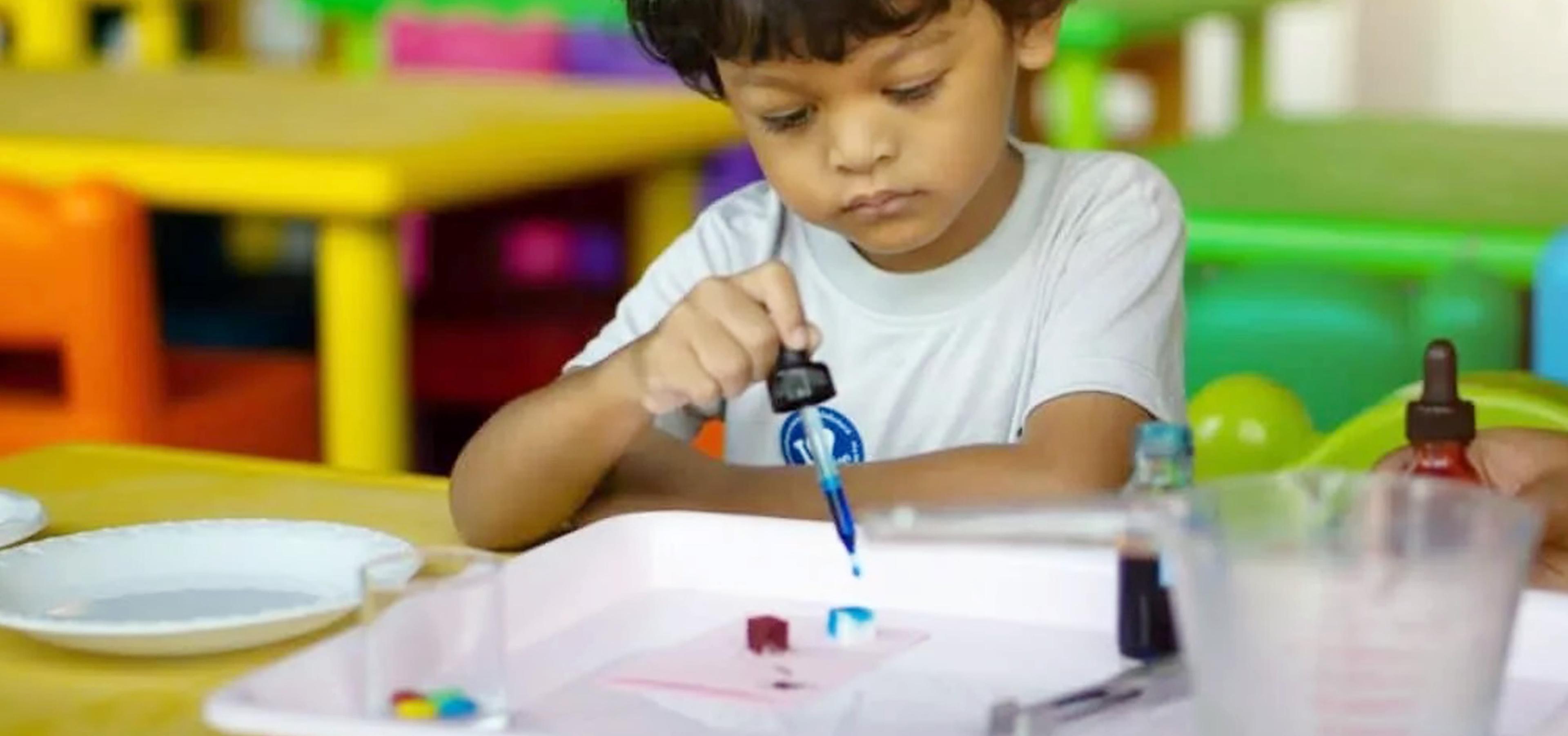Montessori education is a unique educational approach that emphasises hands-on learning, independent exploration, and discovery-based learning.
Importance of hands-on learning and independent exploration
One of the key principles of Montessori education is that children learn best through direct experience and hands-on exploration. This philosophy is particularly well-suited to teaching science, which often involves observing and experimenting with the natural world. In Montessori classrooms, science is typically taught in a way that encourages students to engage with the world around them and to develop their own understanding of scientific concepts through observation and experimentation.

Methods of Teaching Science in Montessori
Demonstration: One of the key methods used to teach science in Montessori schools is demonstration. Teachers often demonstrate scientific concepts and experiments to students, showing them how to use scientific tools and explaining the principles behind the experiments. For example, a teacher might demonstrate how to use a microscope to observe a specimen or show students how to conduct a simple chemical reaction.
Experimentation: Montessori education is not just about passive observation. In addition to demonstrations, students are encouraged to engage in their own experimentation and exploration. Montessori classrooms are typically equipped with a wide variety of scientific tools and materials, including microscopes, magnifying glasses, balances, and more. Students are given the freedom to explore these materials and to conduct their own experiments, under the guidance of their teachers.
Inquiry-based learning: The Montessori approach to science also emphasises the importance of observation and inquiry. Rather than simply memorising scientific facts and concepts, students are encouraged to ask questions and to think critically about the world around them. Teachers facilitate this process by providing opportunities for students to make observations, ask questions, and develop their own hypotheses. Through this process of inquiry and discovery, students develop a deeper understanding of scientific concepts and are better able to apply their knowledge to real-world situations.
In conclusion, Montessori education offers a unique and effective approach to teaching science. By emphasising hands-on exploration, demonstration, and inquiry-based learning, Montessori classrooms provide students with a deep and lasting understanding of scientific concepts. Whether through observing the natural world, conducting experiments, or asking questions, students are encouraged to engage with science in a way that fosters curiosity, creativity, and critical thinking.

